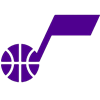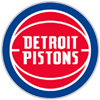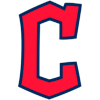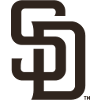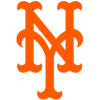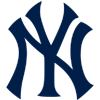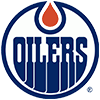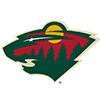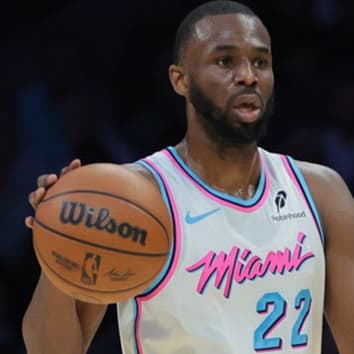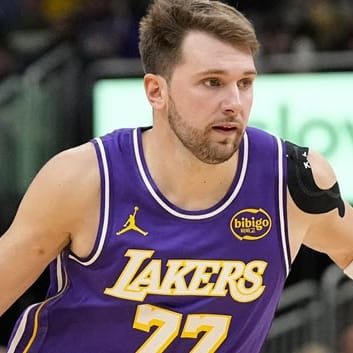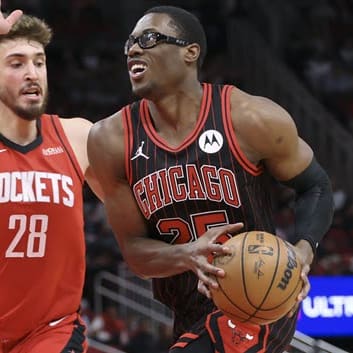STATE OF THE FRANCHISE
Last year was an all-time season for the Clippers organization, winning 40 games and posting a .606 winning percentage, the best in franchise history. Much of that success had to do with the arrival of Chris Paul, but there were other factors involved. General manager Neil Olshey went out and signed Caron Butler to a three-year contract. He picked up Chauncey Billups after the Knicks amnestied him to make room for Tyson Chandler. He re-signed DeAndre Jordan to a $42 million contract and traded for Nick Young midseason. Last year's Clipper team had a lot of new pieces and this year is no different. Olshey has moved to Portland and Gary Sacks has taken over at general manager. Young, Mo Williams, Randy Foye, and Reggie Evans are gone. And with that, Sacks went out and acquired seven new players to the LA roster including Ryan Hollins, Ronny Turiaf, Matt Barnes, Grant Hill, Lamar Odom, Jamal Crawford, and Willie Green. With that new nucleus, LA does get a bit older, but they are also potentially poised to top that best winning percentage in franchise history.
PLAYING TIME DISTRIBUTION
There are some players you know are just going to get their minutes, namely Chris Paul and Blake Griffin. At forward, Caron Butler could see a slight change in his minutes total with Grant Hill and Matt Barnes entering the mix at the three. That means his 30
STATE OF THE FRANCHISE
Last year was an all-time season for the Clippers organization, winning 40 games and posting a .606 winning percentage, the best in franchise history. Much of that success had to do with the arrival of Chris Paul, but there were other factors involved. General manager Neil Olshey went out and signed Caron Butler to a three-year contract. He picked up Chauncey Billups after the Knicks amnestied him to make room for Tyson Chandler. He re-signed DeAndre Jordan to a $42 million contract and traded for Nick Young midseason. Last year's Clipper team had a lot of new pieces and this year is no different. Olshey has moved to Portland and Gary Sacks has taken over at general manager. Young, Mo Williams, Randy Foye, and Reggie Evans are gone. And with that, Sacks went out and acquired seven new players to the LA roster including Ryan Hollins, Ronny Turiaf, Matt Barnes, Grant Hill, Lamar Odom, Jamal Crawford, and Willie Green. With that new nucleus, LA does get a bit older, but they are also potentially poised to top that best winning percentage in franchise history.
PLAYING TIME DISTRIBUTION
There are some players you know are just going to get their minutes, namely Chris Paul and Blake Griffin. At forward, Caron Butler could see a slight change in his minutes total with Grant Hill and Matt Barnes entering the mix at the three. That means his 30 minutes per game total from last season could drop a bit. DeAndre Jordan's playing time depends on his ability to close games. If he learns to make his free throws, all of a sudden, he could see his minutes total spike upwards of 30 per game. Ryan Hollins and Ronny Turiaf will probably play an insignificant amount of time, regardless of who plays more. There will be a bit of a logjam at guard. Eric Bledsoe is expected to play more after his spunky playoff performance. That leaves Jamal Crawford, Chauncey Billups, and Willie Green splitting minutes at shooting guard. Billups is the anticipated starter, but if he isn't ready at the beginning of the year, Jamal Crawford will probably step into his shoes. Once Billups returns – and especially if he is healthy – that could leave Green as the odd man out.
PLAYER OUTLOOKS
Center
DeAndre Jordan: Jordan did improve in 2011-12, though it did seem like just barely. He posted career highs in minutes per game, rebounds per game, points per game, and blocks per game. The problem with Jordan is that with his untrustworthy free throw shooting (only 52.5 percent a year ago) and his lack of offensive moves, coach Vinny Del Negro does not always feel comfortable leaving him on the floor for the end of games. That could keep his minutes total right around 27 minutes per game once again and playing that little could have a serious impact on his fantasy value.
Ryan Hollins: Hollins didn't play much in the 39 games that he saw the floor in 2011-12 with both Cleveland and Boston. The upcoming season probably won't be very different, as he'll have to fight for minutes with Ronny Turiaf to be the primary backup to DeAndre Jordan.
Ronny Turiaf: Turiaf is a superior rebounder to Hollins and has more experience playing big minutes on a good team. That being said, he will have to fight with Hollins for minutes backing up DeAndre Jordan and that means his numbers probably won't end up being too desirable come the end of the season.
Forward
Blake Griffin: Griffin is one of the most dominant and efficient players in the NBA. He finished in the top five in the league in points in the paint last season, but his jump shot is absoutely overly criticized. He shot 38.2 percent on long twos last season, the same exact percentage that Carmelo Anthony shot in those situations – and Melo is usually touted as the best pure scorer in the league. Meanwhile, Griffin did actually improve his shot last year throughout the season. He hit better than 40 percent of his long twos in the final two months of the year. If that jumper continues to improve, we could be staring at a career year from the two-time All-Star entering his third NBA season.
Caron Butler: The big news for Butler last season, when he was coming off a serious knee injury, was that he stayed healthy and only missed three games all year. He seemed to have lost some athleticism, but overall, had a respectable season in his first year in LA. Entering year two, his role won't change. Butler will continue to start at small forward and even with Grant Hill and Lamar Odom now in the mix, you can probably expect similar minutes and similar production for the savvy veteran in the upcoming season.
Matt Barnes: Barnes was the last player the Clippers signed this offseason, but it is hard to see where his minutes might come from in 2011-12. Barnes averaged 22.9 minutes per game last season, but he will start the year playing behind both Grant Hill and Caron Butler at small forward – and that doesn't even account for potential minutes for Lamar Odom at the three. The means unless there are some injuries, which is supremely possible for both Hill and Butler, Barnes might struggle to play as much as he did last season.
Grant Hill: Speaking of efficiency, Hill is consistently one of the most efficient small forwards in the NBA year-in and year-out. Here's the problem: from 2000 through 2007, Hill was a broken player in Orlando. He was constantly fighting injuries until he showed up in Phoenix, whose vaunted training staff seemed to have fixed him for the past five years. Now Hill is away from the most respected training staff maybe in all of American sports and he holds the title of being the second-oldest player in the NBA – only one day younger than the Knicks' Kurt Thomas. Hill could come out and have a highly efficient season with Chris Paul, but he'd have to stay healthy to do so.
Lamar Odom: Does anyone have any idea what to expect from Odom? He was such a problem last season in Dallas that the Mavericks essentially sent him to the corner, turned his chair to the wall, and put him in a timeout for the end of the season. His numbers were career lows across the board and it would be reasonable to question if a 32-year-old could come back from that low just because he is now happy to go to the beach at will once again. It would be surprising if Odom did not improve upon his 2010-2011 season, considering it would be quite difficult to get any worse, but anticipating the numbers from his final season with the Lakers, when he posted career-high field-goal and three-point percentages, might be a bit too lofty of a goal.
Trey Thompkins: Thompkins averaged only five minutes per game last season in the 24 games that he actually got onto the court. But playing behind so many forwards, time in the D-League could be a distinct possibility in 2011-12 for the second-year, Georgia alum.
Guards
Chauncey Billups: Sensing a theme to the Clippers' upcoming season at all? Health might be it. In a span of one year, LA went from being a young, up-and-coming team to a pretty old one. Billups is another veteran whose health will be in question at the start of the season. Coming off a season that was cut short in his 20th game by an Achilles injury, the former NBA Finals MVP may not be ready for the start of the upcoming year. If he isn't, that means Jamal Crawford will probably slot into his starting spot at shooting guard. Billups had clearly fallen off even before his injury last season, shooting only 36.4 percent from the field and losing some explosiveness when creating off the dribble. Surgery won't help that, but if he does return to the form of last year, he could be able to give fantasy owners some respectable per game scoring and assist numbers.
Eric Bledsoe: The real question for Bledsoe in the upcoming season will be, "How much playing time is he going to get?" Bledsoe played only 11.6 minutes per game last season and though he didn't put up superb numbers, coach Vinny Del Negro never really allowed him to get into a rhythm in the regular season. The postseason, however, was Bledsoe's coming out party. Del Negro played him 17.2 minutes per game and the second-year guard averaged 16.6 points, 5.0 rebounds, and 4.4 assists per 36 minutes. If Bledsoe continues to improve – and he's only 22 – he could end up seeing plenty of more playing time in the upcoming season, especially considering he is probably the best perimeter defender on the roster.
Jamal Crawford: Let's ignore the contract here. The Clippers clearly overpaid and overextended for Crawford giving him four years at the mid-level exception. At this point, Crawford might just be one of those players who has more fantasy value than actual, on-the-court value. Though he posted his lowest field goal percentage since his rookie season last year, he did lead the league in free throw percentage and still averaged 18.7 points per 36. He won't get a fantasy team any sort of rebounding, but he could see more minutes than he did last year – especially if Billups is out at the start of the season – and that means scoring numbers and a few assists are a distinct possibility from the veteran guard.
Willie Green: Green will step in to play the role of the shooter. The Clippers lost Nick Young, Randy Foye, and Mo Williams in the offseason, who all have quality jumpers from three-point land. Green may not play a ton of minutes, but getting to be on the floor with Chris Paul could seriously help with his efficiency and could lead to a bunch of wide-open looks from the perimeter.
Travis Leslie: Leslie spent time in the D-League last season and it looks like this year may not be much different. With as many guards as the Clippers have, it is hard to see him leapfrogging any of them without an injury getting in the way.
Chris Paul: What more is there to say about Chris Paul? 2011-12 was yet another remarkably efficient season to add to his career. Averaging 19.8 points per game and 9.1 assists per game puts him in elite company with other point guards. Meanwhile, he has led the league in steals per game in four of the past five seasons – and the only year he didn't do it was when got hurt and played in only 45 games. Meanwhile, in Paul's second season in LA, a year in which he'll actually have a training camp, he might feel even more comfortable with his teammates and his surrounding environment.
SLEEPER
Eric Bledsoe: Bledsoe was a first-round pick, who hasn't seen a ton of NBA minutes, but has excelled when given the chance. If he can finagle his way into 25 minutes per game this year, he could be a nice surprise in Los Angeles.
BUST
Jamal Crawford: Crawford's efficiency has consistently gone down over the past three years, not something you want to see in a 32-year-old guard. He shot only 30.8 percent from three last season and if he is unable to score at a solid rate, he won't be able to bring much else to the table.








